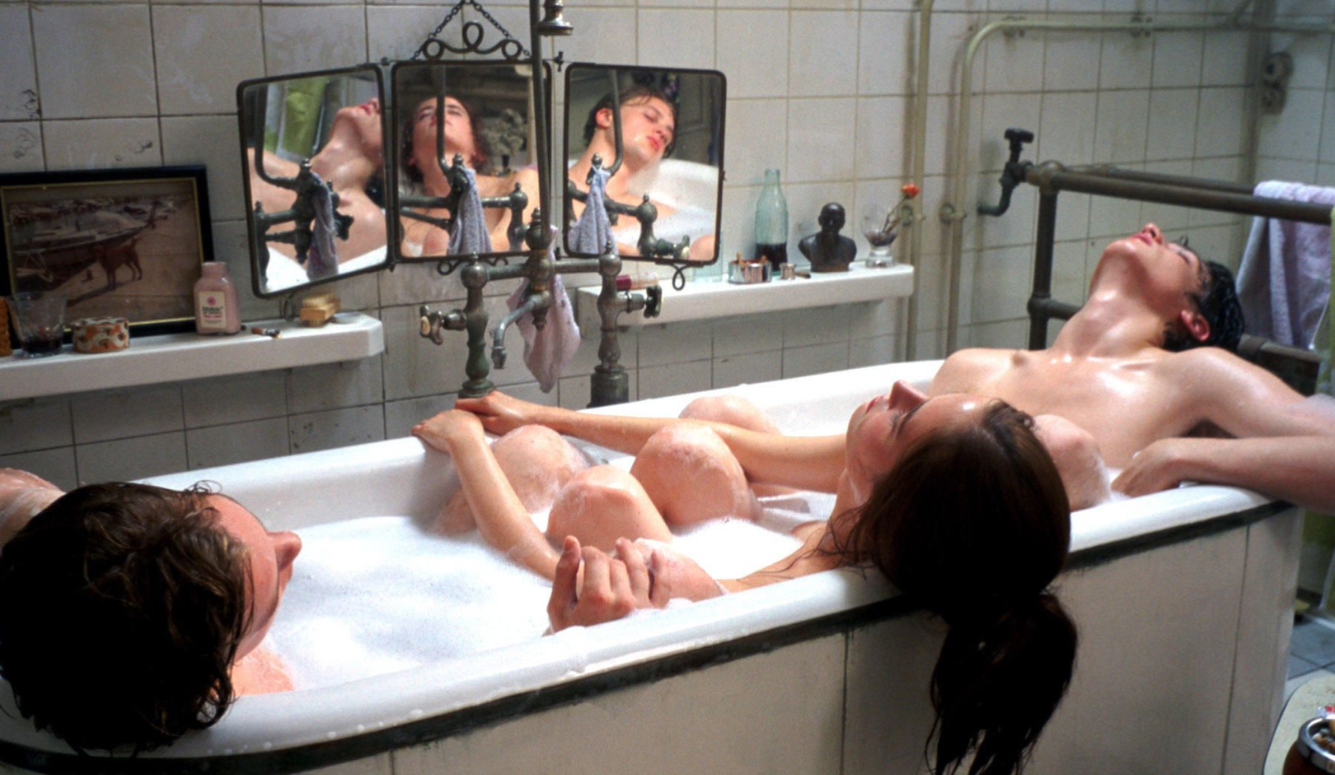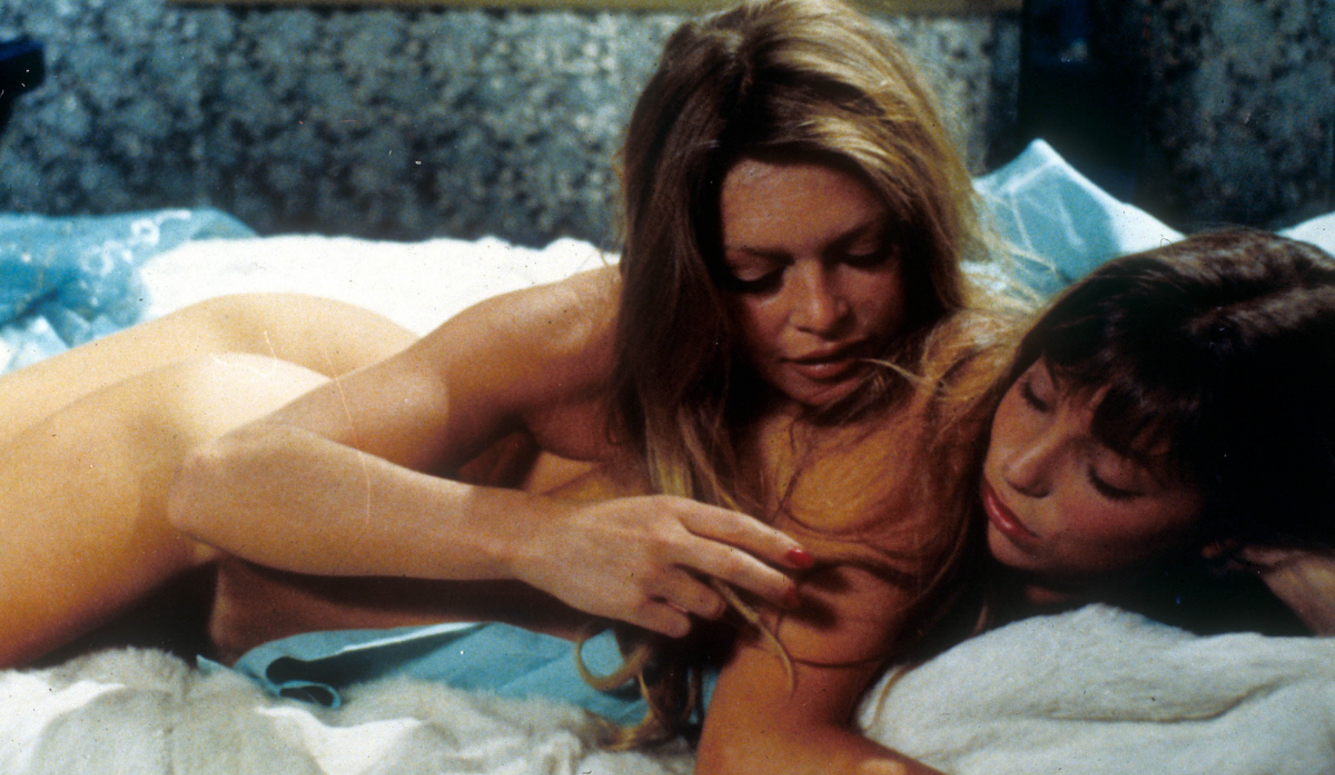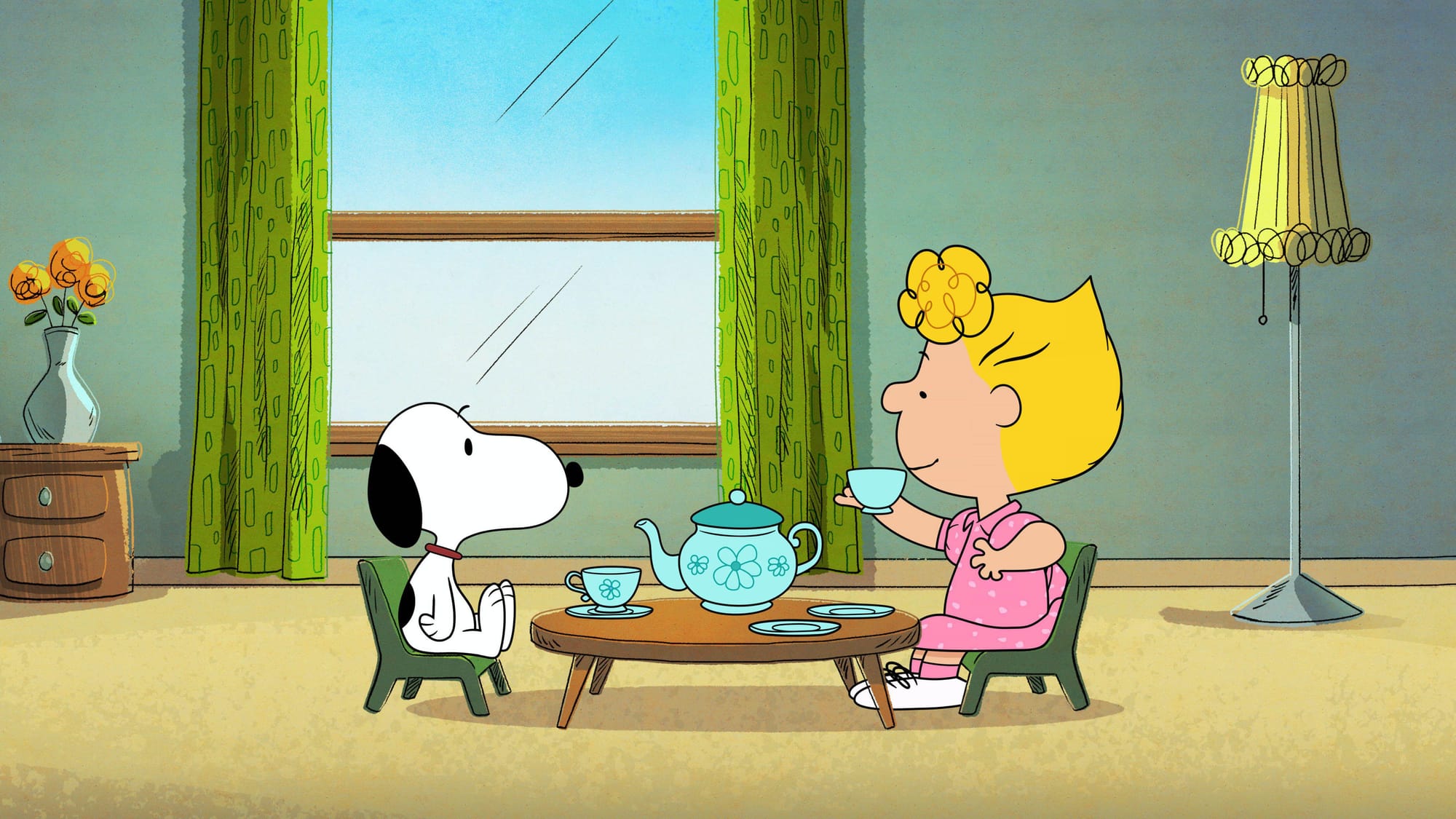
My husband sends me a photo of himself to show me his new glasses. In the corner of the shot, just behind him on our bed, I see the face of a woman smiling up at him. My heart stops momentarily. I’m angry, I’m afraid, but I’m also a little bit—not excited, exactly, and definitely not thrilled—but... roused, perhaps? Yes. Flushed? Certainly. Aroused? No. But then again, it is hard to say. The moment passes when I recognise the face on the bed as my own. It’s a throw pillow with my face on it—a gag Christmas gift from me to him. And yet, through my relief, I feel my heart still pounding. I don’t know whether I want to fight him or fuck him.
The second season of HBO’s The White Lotus features two young married couples on vacation together at a Sicilian resort. One couple, Harper and Ethan, represent the good moral couple. They are scrupulously honest with each other, supportive of each other’s careers, ethical in their global concerns, and mind-numbingly unsexy, despite their good looks. The other couple are not only husband and wife, they are also parents. Cameron and Daphne are joyfully in love. They kiss, they giggle, they caress. Their flirtations as a married couple are indecent and even scandalous. They are doing what Oscar Wilde called “airing one’s clean laundry in public.” Their passion for one another is resentfully described as “a front” by Harper, but even in private, Cameron and Daphne playfully make love and sleep nestled tenderly together. It all seems too good to be true, which is why Harper feels secretly delighted when she discovers that it is. Cameron cheats on Daphne. And, it seems, Daphne cheats on Cameron. They’re fakes.
Unless, of course, it is the cheating that makes them so happy. Daphne and Cameron seem to have an eyes-wide-shut arrangement. They like games, and they like playing games together even more. We see them playing as Cameron tries on new clothes—leopard and floral print shirts—after his luggage goes missing. He acts the part of a Safari explorer, of a bumbling tourist. Daphne laughs. They chase each other around their hotel room, playing tag. More laughter. Daphne rents a villa for her and Harper and keeps it a secret from her husband until they’re already there and it’s too late for them to return to the hotel. Which means she will be spending an extended girls’ night out away from her husband, with a bit of subterfuge. Who knows what might transpire? He’ll have to wonder. On another occasion, she gets a massage from a young Italian man at the spa. “Did he accidentally touch your boobs?” Cameron teases. “I asked him to!” Daphne replies. More laughter. Theirs is a game of one-upmanship. Each knows that they’re playing a game. As the risks get riskier, the fun increases, as does a sense of intimacy born of playing this game together, just the two of them. It isn’t a fun game unless there’s something at stake.
They are genuinely in love. But they both want to be deceived by the other. Daphne knows that her husband cheated on her while she and Harper were overnighting at the villa. The evasive responses that Ethan and Cameron offer in response to Harper’s pointed questions about how the husbands spent their own stag night are impossible to ignore. But Daphne does ignore them. She is innocent as a dove, but wise as a serpent. Why? Cameron is lavishing her with attention, with kisses, with lingering glances at the wine bar, with his arms wrapped around her as they stroll along the beach. Just because they’re not completely honest with each other, that does not mean that they’re faking love and intimacy. Would it go too far to suggest that the dishonesty actually intensifies their love and intimacy to reach the level it does?
Harper and Ethan, on the other hand, are neither tender nor fun together. They have a frigid marriage. No sex, until they finally make feverish love after a glorious week of vacationing at a sensual resort. What took them so long? By the end of week, each of them has a secret: Ethan has probably had sex with Daphne, and Harper may have slept with Cameron. Each of them has been made to feel desirable. That secret forms a raw edge—a space in which an ache and a yearning occurs, and a tension where desire is formed. There is a newfound tenderness when they make love in the last episode, as well as a newfound passion. Ethan holds Harper’s face in his hands and brushes her stray hairs aside. She looks him in the eye, vulnerable and timid. The ice-bitch has melted. The ethical feminist man takes his wife in hand, commandingly. They make love as though seeing each other as a beloved stranger.

It is easy to keep an erotic spark in marriage. But most couples would probably prefer not to. Eros needs tension. It needs uncertainty so that it can create trust. It needs competition, and even jealousy. Eros needs triangulation, mimetic desire. I need to see that my husband can attract other lovers. Not only does their desire make him more attractive to me, but I need to see that he desires them, too. It then becomes a contest—a game that I want to win. (I know that I will win it. But even so, I still need to pretend that the outcome is uncertain. I am playing for real.) Eros needs something unknown so that there is a space where faith can flourish. It needs risk, so that there is a striving to almost bridge the gap between us without ever closing it entirely. My husband must remain separate so that the process of discovering him never ends.
The reason eros disappears from many marriages isn’t for lack of love—one can have lots of love without any erotic charge—but for lack of uncertainty. “A little mystery,” Daphne remarks, “is sexy.” The problem is that uncertainty is uncomfortable. It makes us feel insecure. This is entirely understandable, and perhaps the reason why most marriages work best without an electric erotic current. It requires courage and risk in precisely the place we expect security and comfort. Ordinary contentment and tender familiarity have their place, and I am in no position to gainsay those who privilege these things (as, indeed, I do). After all, the institution of marriage exists, at least in part, to preclude uncertainty. The vows I took on my wedding day were to honour and protect my husband, “forsaking all others, to be faithful to him so long as I shall live.” I meant it when I said it. I still mean it now. How then do I create a tension between us if the very nature of marriage is that there is no such tension?
An important part of Ethan and Harper’s marriage is that neither they nor we know for certain whether either did in fact have sex with Cameron or with Daphne. It remains an unknown, and as such, it is no more than a possibility in their minds. It is this way, too, with Daphne and Cameron, but they’re game cuts a bit closer to the bone. They are not, like the honest and ethical couple, wilfully self-deceived about the frigidity of their marriage. They are wilfully selective about what they don’t want to know. They leave their deceptions of each other in the dark so that there is something to work with in their imaginations. But the most erotic scene of The White Lotus—erotic as opposed to merely sexual—does not belong to Daphne and Cameron, but to Harper and Ethan. Their fantasies are in play as they kiss and caress. Neither knows, but each imagines their beloved with another. And it is in this realm of fantasy that the married couple’s erotic happiness may lie.
“Faithful infidelity” sounds paradoxical, but it is precisely in the couple’s uncertainty about each other’s fidelity that true faith can flourish.
When I described Daphne and Cameron’s marriage as an eyes-wide-shut arrangement, I was thinking of the way they wink at one another’s indiscretions, but I was also thinking of Stanley Kubrick’s final film. Eyes Wide Shut was Kubrick’s swan song to love—the story of a beautiful married couple, Dr Bill Harford and his wife Alice, played by then-married couple Tom Cruise and Nicole Kidman. They are loving but boring, not unlike Harper and Ethan, and we watch as their relationship moves from monogamous certainty to faithful infidelity. “Faithful infidelity” sounds paradoxical, but it is precisely in the couple’s uncertainty about each other’s fidelity that true faith can flourish. One can only have faith in what one does not know. Knowing destroys faith, because no belief is required.
It is Alice who first destroys her husband’s faith in her by laughing at his complacent trust in her. She then tells him, in detail, about a naval officer she saw in a hotel lobby for only a few minutes, but about whom she developed an abiding sexual fantasy. “Just the sight of him,” Alice tells her husband, “stirred me deeply and I thought if he wanted me, I could not have resisted. I thought I was ready to give up you, the child, my whole future. And yet at the same time—if you can understand it—you were dearer to me than ever, and I stroked your forehead and kissed your hair, and at that moment my love for you was both tender and sad.” Bill is stunned. Alice asks if he is angry with her. “Not at all,” her husband replies stiffly. “We must always tell each other everything.”
But he is angry. He is angry that she desires someone besides him, and that her desire is so uncommonly intense. He is angry that she could have harboured this desire and that he had not known about it. He is angry that he has no secret of his own, and that at this moment, their relationship is unbalanced. Bill then embarks on an erotic quest. He enters a strange and dangerous world soaked in sex and mystery and possibility. And he continues to probe Alice, perversely encouraging her to bring her deep unconscious longings to the surface. She wants him to do this. It is always on her initiative that the inner truth of her betrayal is revealed. It is at once a horror to Bill and a relief. What he never even suspected, he now knows. She is—at least as he perceives it—an insatiable slut. (In her mind, at least…)
The first time I saw Eyes Wide Shut, I was barely out of my teens. I was scandalised by it, and so was the guy I was dating at the time. Scandalised by the very fact that Alice had entertained a sexual fantasy of another man outside of marriage. Was I naive to believe that a person’s inner world had to be chaste? Or was it cowardice and insecurity? Or perhaps it was a well-intentioned moralism, poorly applied. That last interpretation seems right. Kubrick’s film elicited a kind of pearl-clutching prudery in me, it is true. The young are typically moralistic, and I was no exception.
But it also called out something beautiful and pure that I longed for—a secret part of me that I would give to one man in love someday. That it had to be secret was the entire point. If the world was utterly sexed—including even my own imagination, my own fantasies, as Alice’s was—how could I make this secret a gift of myself that I might share with another? How could my love mean something more than a social commitment, a domestic agreement, a quid pro quo that at bottom looks like merely reciprocal self-pleasuring? I ached to give away the fuller gift of myself that would be only for a man who would receive the gift of my love with love. This would require a man of colossal confidence with a taste for risk. The longing to give away what is secret and precious, if it is to be renewed, requires that the secret thing, the thing that would be risky to reveal, itself be renewed. Only what is wrong, even injurious to one’s beloved, is very risky indeed.
A friend of mine holds a more traditional view of eros in marriage. She says, if I understand her correctly, that one can never fully know another, and that part of the eros of marriage is to keep discovering one’s beloved. I don’t think she is wrong. But there is a kind of knowing that can only happen when you see another from the outside. If I give myself to my lover, he cannot see all of me because he is directly relating to me, and, presumably, reciprocating. But if he is not the object of desire, he can observe it. He can move around me, looking at me from new angles, seeing what he hadn’t noticed before, knowing me more and feeling the strangeness of me come and go like waves that wash over him.

It is in sharing a fantasy—desiring another, leaving something uncertain and unknown—that I can give my husband the deepest and most secret part of me. Expressing to him a desire for another—someone real glimpsed in the world, or someone made-up in bedtime story-telling, a delicious improv we slide into together—is a kind of radical monogamy. The other is used as a prop so that I can become more fully exposed to my lover. He can discover more of me, the secrets I keep, even from him (those are the most delicious to discover).
Alice and Bill, unlike Daphne and Cameron, never act upon their fantasies. The naval officer whom Alice desires departs from the hotel before she says a word to him. “I barely slept that night and woke up the next morning very agitated,” Alice tells Bill, describing her feelings for the other man. “I didn’t know whether I was afraid that he had left or that he might still be there. … But by dinner, I realised he was gone, and I breathed a sigh of relief.” The beautiful thing is that Alice’s desire is real. It is not a chaste desire, nor a moral one. Bill has his own desires, and they are just as real. He will tell Alice of them in time. Although it is unconsummated, the betrayal is authentic, just as it is for Harper and Ethan.
When I was young, I thought that Eyes Wide Shut was a dark movie, and that it held a warning for me: don’t allow yourself to be led into temptation. But now I see the film as a joyous comedy. It ends with Alice and Bill finding a new passion for each other as well as a new commitment. “We are awake now,” they tell each other. “Forever.” It ends not with them going to make love, but with Alice saying it is time for them to “fuck.”
The same feeling is captured at the end of The White Lotus. The moment that interests me most occurs in the scene when Ethan confronts Cameron, enraged that Cameron has come on to his wife. They fight in the sea, nearly drowning each other as they wrestle. At last, another man comes rushing in and breaks up the fight. Ethan gets in one last punch that lands squarely on Cameron’s face before walking away. Cameron watches him go, then lies back in the water, floating calmly, and a smile spreads across his face. Is he smiling because he feels he has bested his friend, or because he feels he has finally initiated his friend into a deeper life, a move from companionship with Harper to a wild passion for her? His response, and that of Daphne when she seduces Ethan, are ambiguous. But what is not ambiguous is their love and passion for each other. Daphne and Cameron do not live by society’s prevailing ethics. But they have something very real, even so. The last glimpse we have of the two couples is of Cameron and Daphne, Ethan and Harper, sitting as two couples arm in arm, tenderly. Harper leans her head against Ethan’s chest. Daphne and Cameron are snuggling and giggling.
Shakespeare’s A Midsummer Night’s Dream follows two couples into the woods where, aided by the mischievous Puck and a misplaced love potion, each man comes to love the wrong person. The couples get mixed up. A chaste man reveals his passion for another woman. They fight. A faithful woman feels betrayed. It is a hot mess. But they wake to have order restored (though one of the men remains under the effect of the love potion, presumably indefinitely). When the queen, Hippolyta, hears of their escapades, she remarks that whatever happened to them in the woods “grows into something of great constancy.” There can be a great constancy that grows out of erotic inconstancy. Queen Hippolyta says it is “strange and admirable”—not the following of the law, but the fulfilment of it.
As for that other me in pillow form, she has become a bit of an open secret in my marriage. My husband remarks about how pleasant she is: quiet and always demure (very unlike his wife). I am certain she and he enjoy stolen moments together. I harbour petty jealousies and fantasies of revenge. We laugh about it together. We tell each other secrets about her. What do we say? That is not for you to know, but we most certainly break the rules of decency. It is the most scandalous monogamy I can imagine—and the deepest.










